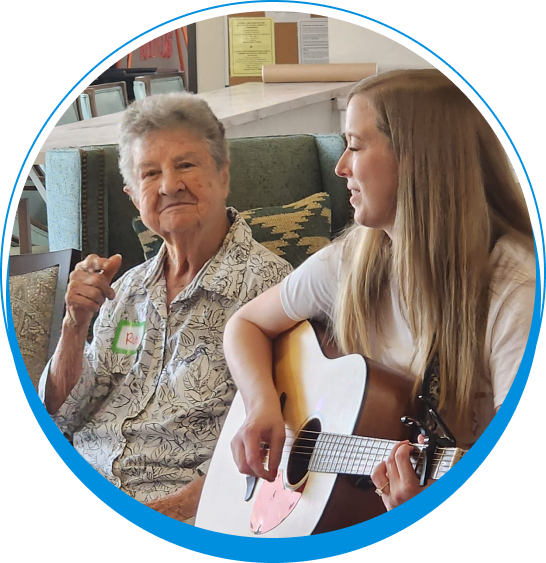COVID-19 resource for caregivers Issue #8 of 10
The James L. West Center for Dementia Care has launched a Tool Kit for lay and professional caregivers who are providing support to persons with dementia during this critical time. To receive ongoing information, contact caregiver@jameslwest.org
A person living with dementia has the same emotional needs now as they did prior to the onset of dementia. They need the opportunity to engage in meaningful activity, be free from as much stress as possible, and feel as though they still matter. Older adults with dementia will pick up on the clues in the environment that something different is going on, and they will need support during times of change. Here are some ways you can support your loved one’s emotional wellness:
- Validate his or her feelings: If your loved one voices concern about what is happening, don’t dismiss it, instead say, “I know you are worried. I’m here with you, and it will be OK.” Or, “Yes, this is upsetting, but I’m glad we’re together.” You want to validate but offer reassurances of safety. Listen to what they are saying, their feelings are real.
- Provide meaning and purpose: An important part of emotional wellness is feeling needed and useful. Simply saying, “I need your help” or “Would you help me?” and giving them a task to do (within their ability level) can go a long way to helping them feel purposeful, especially during uncertain times. It will also curb boredom that can lead to depression.
- Maintain comforting routines: Structure and routine are important to a person with dementia. Keeping sleep and wake times consistent as well as helping the person to get up and get dressed for the day, even while staying at home, can provide comfort that life is still the same.
- Limit the news: Your loved one will likely not be able to process all the news related to the pandemic and unrest. Stay up to date on the news when your loved one is occupied elsewhere and encourage others to refrain from discussing upsetting news as much as possible. Their inability to process and make sense of what is happening will only add to their anxiety and fear.
- Touch: Often times the only touch many older adults receive is when care is given. Offer your loved one a hug in the morning or before bed. If they are anxious or lonely, you can sit next to them and hold their hand. A nice hand massage with scented lotion after they wash their hands may feel comforting.
- Exercise: Exercise plays a role in emotional wellbeing. Going outside allows the person with dementia (and you!) to get fresh air, sunlight and some physical activity. If they are unable to walk outside, even sitting outdoors will provide a benefit. Simple arm exercises, leg kicks and stretches can be done from a wheelchair as well.
The West Center presents this information with the support of the following organizations: Dementia Friendly Fort Worth – Alzheimer’s Association – Tarrant Churches Together – United Way/Area Agency on Aging


